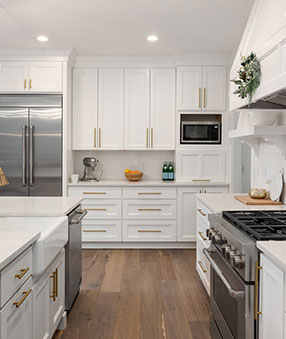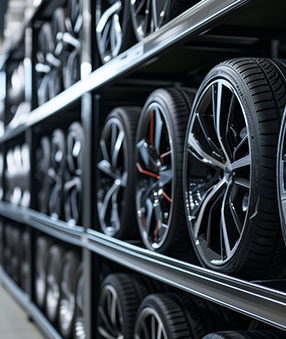
If you plan on cooking anything from eggs and bacon to pizza and breadsticks, a dependable kitchen range can be a must-have item for your home. Regularly used for the majority of cooking in many households, ranges are among the most popular appliance purchases across the nation.
The question many shoppers have when getting a new range is, gas or electric? Which is better? The answer to that question isn't as cut and dry as we'd like, but there are a number of unique benefits each type provides. Read on as we answer 5 of your most popular kitchen range questions.
Which Type Heats Better?
If you're asking about which type offers more heat control, gas ranges win by a mile. Whether it's your stove or oven, gas ranges will immediately begin heating the unit while electric ranges need time to heat up.
However, electric ranges will stay hot much longer after being turned off, allowing you to save energy costs if you need to swap out items, or start cooking something new.
Which Type Cooks Better?
This is a hard question to answer, because it depends on your preferred cooking style. Gas ranges typically provide a heat that's moist, lending to tender, juicy meat dishes, casseroles, and vegetable bakes.
Electric ovens instead offer a dryer, crisper heat. This would be perfect for those wanting an extra crunch to chicken wings, fries, or even chocolate chip cookies. (Team crispy, here. So much better for dipping in milk)
Which Type is Easier to Use?
Electric ranges pull ahead here, with their basic and simple functions. Twist a nob and your stove is heating up. Type in a number and your oven is already preheating. Beyond that, there's not much you need to do to operate an electric oven.
Gas ranges require a little more monitoring. While an electric range generally provides a well-balanced distribution of heat, flames are a bit more difficult to control and require slightly more monitoring.
Which Type is Cheaper?
There are a lot of ways to answer this question, so let's just focus on the specifics. An electric stove is typically more expensive up front. Depending on the region you're in, running electric as a power source can cost more than gas over the course of the range's lifetime. On the other hand, electric ranges are more efficient than gas units, which could end up being a money saver in the long run.
Additionally, gas ranges are generally cheaper up front and run on a cheaper energy source. However, unlike electric ranges, you can't place a gas unit just anywhere. It needs to be close to a gas line. This either limits your placement options or forces you into a potentially expensive gas line hookup.
Which Type is Safer?
The main danger with electric ranges is how long they remain hot after turning off the power. This could present a potentially dangerous situation for small children (or even yourself) if they're not aware the oven has been on.
Though gas ranges typically avoid lasting heat dangers, they are susceptible to gas line breakage. Always be sure to secure your gas range to the wall with approved bands and straps to prevent unwanted movement.
So, Who Wins?
This is a question only you can answer. Both electric and gas ranges offer unique benefits, but also come with their share of downsides. The choice about which is better most likely comes down to your own personal preference. Whichever you end up purchasing, enjoy your new appliance, and happy cooking!









